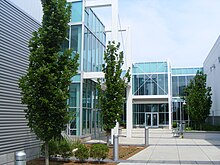The University of California, Davis, School of Law is the professional graduate law school of the University of California, Davis. The school received ABA approval in 1968. It joined the Association of American Law Schools (AALS) in 1968.

A law school in the United States is an educational institution where students obtain a professional education in law after first obtaining an undergraduate degree.

Admission to the bar in the United States is the granting of permission by a particular court system to a lawyer to practice law in the jurisdiction. Each U.S. state and jurisdiction has its own court system and sets its own rules and standards for bar admission. In most cases, a person is admitted or called to the bar of the highest court in the jurisdiction and is thereby authorized to practice law in the jurisdiction. Federal courts, although often overlapping in admission standards with states, set their own requirements.
A bar examination is an examination administered by the bar association of a jurisdiction that a lawyer must pass in order to be admitted to the bar of that jurisdiction.

The Michigan State University College of Law is the law school of Michigan State University, a public research university in East Lansing, Michigan. Established in 1891 as the Detroit College of Law, it was the first law school in the Detroit, Michigan area and the second in the state of Michigan. In October 2018, the college began a process to fully integrate into Michigan State University, changing from a private to a public law school. The integration with Michigan State University was finalized on August 17, 2020.
The University of Maryland Francis King Carey School of Law is the law school of the University of Maryland, Baltimore and is located in Baltimore City, Maryland, U.S. Its location places Maryland Law in the Baltimore-Washington legal and business community. Founded in 1816, it is one of the oldest law schools in the United States.
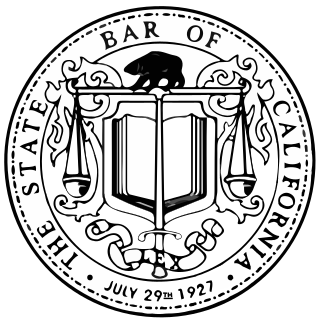
The State Bar of California is an administrative division of the Supreme Court of California which licenses attorneys and regulates the practice of law in California. It is responsible for managing the admission of lawyers to the practice of law, investigating complaints of professional misconduct, prescribing appropriate discipline, accepting attorney-member fees, and financially distributing sums paid through attorney trust accounts to fund nonprofit legal entities. It is directly responsible to the Supreme Court of California; however, its trustees are now appointed by the Supreme Court, the California Legislature, and Governor of California. All attorney admissions are issued as recommendations of the State Bar, which are then routinely ratified by the Supreme Court. Attorney discipline is handled by the State Bar Office of Chief Trial Counsel, which acts as prosecutor before the State Bar Court of California. The State Bar has been cited for its corrupt practices during the 21st century, and is subject to reforms issued by its governing body, the California Supreme Court.
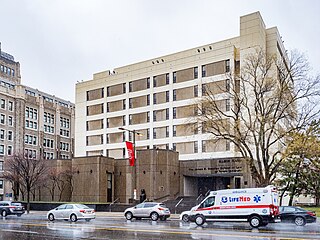
The Temple University James E. Beasley School of Law is the law school of Temple University, a public research university in Philadelphia, Pennsylvania. It was founded in 1895 and enrolls about 650 students.

A law school is an institution, professional school, or department of a college or university specializing in legal education, usually involved as part of a process for becoming a judge, lawyer, or other legal professional within a given jurisdiction. Depending on the country, legal system, or desired qualifications, the coursework is undertaken at undergraduate, graduate, or both levels.
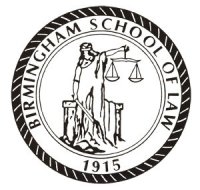
The Birmingham School of Law is a state-accredited law school located in Birmingham, Alabama. Founded in 1915 by Judge Hugh A. Locke, a judge of the Chancery Court and president of the Birmingham Bar Association, the Birmingham School of Law offers a part-time program of study in which graduates receive the Juris Doctor (J.D.) degree after four years of study.
An admission to practice law is acquired when a lawyer receives a license to practice law. In jurisdictions with two types of lawyer, as with barristers and solicitors, barristers must gain admission to the bar whereas for solicitors there are distinct practising certificates.
The Valparaiso University Law School was the law school of Valparaiso University, a private university in Valparaiso, Indiana. Founded in 1879, the school was accredited by the American Bar Association in 1929 and admitted to the Association of American Law Schools in 1930. In October 2016, the ABA censured the school for admitting applicants who did not appear capable of satisfactorily completing the school's program of legal education and being admitted to the bar. One year later, the school suspended admissions and shut down after the last class graduated in 2020.
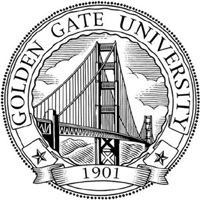
Golden Gate University School of Law is the law school of Golden Gate University. Located in downtown San Francisco, California, Golden Gate Law is a California non-profit corporation and is fully accredited by the American Bar Association (ABA). On November 30, 2023, the law school announced that it will discontinue its J.D. program at the end of the current academic year, following years of financial hardship and non-compliance with the ABA's two-year bar pass rate requirement.

The University of the Philippines College of Law is the law school of the University of the Philippines Diliman. Formally established in 1911 in UP Manila, it is the third oldest continually-operating law school in the Philippines. Since 1948, it has been based in UP Diliman in Quezon City, the flagship of the UP System's eight constituent universities. The college also holds extension classes at the Bonifacio Global City campus of UP Diliman in Taguig and the Iloilo City campus of UP Visayas.
Charlotte School of Law was an independent for-profit college in Charlotte, North Carolina, established in 2006. It was provisionally accredited by the American Bar Association (ABA) in 2008, and fully accredited in 2011. However, the ABA placed the school on probation in 2016, resulting in the school's closure the following year. While Charlotte Law served the community through expungement programs and restitution self-help clinics, it was also criticized for alleged mismanagement and compliance issues, which were later found to be true. Charlotte Law was owned by the InfiLaw System.
Reading law was the method used in common law countries, particularly the United States, for people to prepare for and enter the legal profession before the advent of law schools. It consisted of an extended internship or apprenticeship under the tutelage or mentoring of an experienced lawyer. The practice largely died out in the early 20th century. A few U.S. states still permit people to become lawyers by reading law instead of attending law school, although the practice is rare.
The City University of New York School of Law is a public law school in New York City. It was founded in 1983 as part of the City University of New York. CUNY School of Law was established as a public interest law school with a curriculum focused on integrating clinical teaching methods within traditional legal studies.

The Silliman University College of Law is one of the constituent colleges of Silliman University, a private university in Dumaguete, Philippines. The college was founded in 1935 with Emilio Javier and Felix Gaudiel as pioneers. When the college opened, it offered a Bachelor of Laws (LLB) program, but in 2009 it shifted its offering to Juris Doctor (JD). In 2019, Silliman University College of Law was ranked by the Legal Education Board (LEB) as 8th in the list of 10 Top-Performing Law Schools in the Philippines, with 66.67% or 12 out of 18 of its first time Bar Exam Takers passing the 2018 Bar Examinations.

The Inter American University of Puerto Rico, Faculty of Law is the school of law of the Inter American University of Puerto Rico, a private co-educational corporation accredited by the Middle States Association of Colleges and Schools, the Puerto Rico Council of Higher Education, and the Commonwealth of Puerto Rico Department of Education. The School of Law is approved by the American Bar Association (ABA) and is located in San Juan, the capital city of Puerto Rico. Since its founding, the School of Law has succeeded in meeting the needs of the legal profession, in particular, and Puerto Rico's society in general.

In the United States, those seeking to become lawyers must normally pass a bar examination before they can be admitted to the bar and become licensed to practice law. Bar exams are administered by states or territories, usually by agencies under the authority of state supreme courts. Almost all states use some examination components created by the National Conference of Bar Examiners (NCBE). Forty-one jurisdictions have adopted the Uniform Bar Examination (UBE), which is composed entirely of NCBE-created components.
